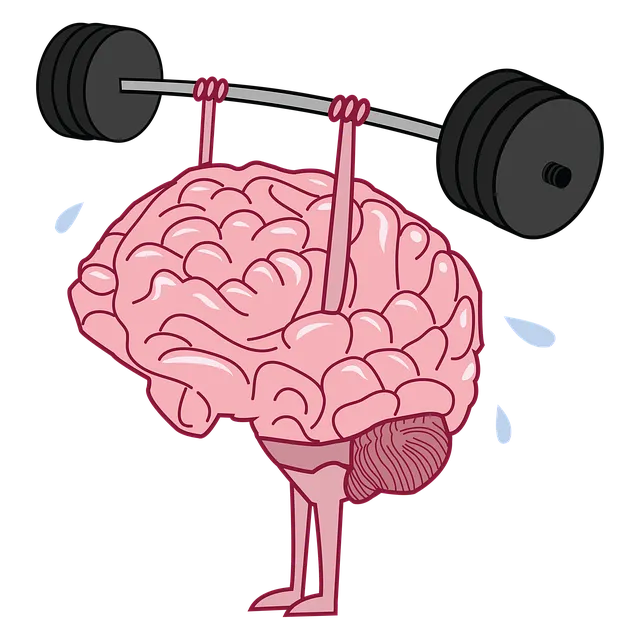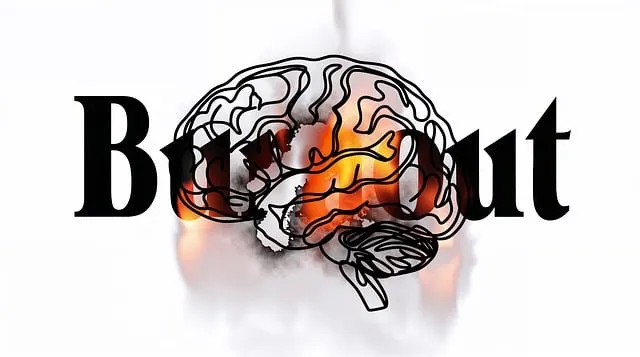Lone Tree Kaiser Permanente mental health services focus on crisis intervention using evidence-based Mind Over Matter principles. They promote open communication, self-awareness, and mental wellness journaling to help individuals recognize and express emotional distress. Offering individual therapy, group counseling, and online platforms, their holistic approach includes stress management, CBT, and personalized coping skill development for stabilization and long-term recovery.
In today’s fast-paced world, understanding crisis intervention strategies is paramount. This comprehensive guide delves into essential aspects of supporting individuals in distress, with a specific focus on resources available at Lone Tree Kaiser Permanente. From recognizing mental health signs to post-crisis care, we explore effective support methods that foster recovery and resilience. By equipping ourselves with these tools, we can navigate crises thoughtfully, providing vital assistance through challenging times. Discover how Lone Tree Kaiser Permanente’s mental health services play a crucial role in this process.
- Understanding Crisis Intervention: A Brief Overview
- Identifying Signs: Recognizing Mental Health Distress
- Lone Tree Kaiser Permanente: Resources and Services
- Strategies for Effective Support and Stabilization
- Post-Crisis Care: Promoting Recovery and Resilience
Understanding Crisis Intervention: A Brief Overview

Crisis intervention is a vital service provided by mental health professionals to support individuals facing severe emotional distress or traumatic events. At Lone Tree Kaiser Permanente, understanding the nuances of crisis intervention is essential in fostering emotional well-being promotion techniques. The primary goal is to offer immediate assistance and guidance during critical moments, helping clients navigate through their challenges with dignity and resilience.
This approach draws upon Mind Over Matter principles, focusing on empowering individuals to manage and overcome their crises. By employing evidence-based strategies, mental health practitioners at Lone Tree Kaiser Permanente facilitate emotional regulation, enabling folks to regain control of their lives and build long-lasting coping skills. Effective crisis intervention requires a compassionate yet structured approach, ensuring that clients receive the support they need during difficult times.
Identifying Signs: Recognizing Mental Health Distress

Recognizing mental health distress is a crucial first step in providing effective crisis intervention. Signs can vary widely from person to person, but there are common indicators to watch for. Behavior changes like sudden irritability, withdrawal from social activities, or extreme mood swings can signal underlying struggles.
At Lone Tree Kaiser Permanente mental health services, we emphasize the Mind Over Matter Principles as a foundational guide. Encouraging individuals to express their feelings through mental wellness journaling exercises can offer valuable insights and serve as a powerful tool in crisis intervention guidance. By fostering open communication and promoting self-awareness, we aim to support those in need and facilitate positive mental health outcomes.
Lone Tree Kaiser Permanente: Resources and Services

Lone Tree Kaiser Permanente offers a comprehensive range of resources and services tailored to support mental health and promote mental wellness. Their dedicated team includes licensed therapists, counselors, and psychiatrists who provide individual therapy, group counseling sessions, and specialized programs designed to address various mental health concerns. The clinic’s approach emphasizes the importance of positive thinking as a tool for crisis intervention guidance, empowering individuals to develop coping strategies and enhance their resilience.
In addition to traditional therapy options, Lone Tree Kaiser Permanente incorporates innovative techniques such as mindfulness practices, cognitive-behavioral therapy (CBT), and stress management workshops. These services are accessible through various platforms, including in-person appointments, virtual counseling, and online resources, ensuring convenience and flexibility for those seeking support. The clinic’s commitment to fostering a supportive environment contributes to effective crisis intervention guidance, enabling individuals to navigate challenging situations with increased emotional well-being.
Strategies for Effective Support and Stabilization

Effective support and stabilization are key components of crisis intervention strategies, especially when addressing mental health concerns in individuals who may feel isolated or overwhelmed. At Lone Tree Kaiser Permanente, our dedicated mental health services emphasize a holistic approach to care. This involves providing immediate comfort and safety while empowering individuals with practical coping skills. Our trained professionals facilitate open dialogue, encouraging clients to express their feelings and work through distressing situations constructively.
By integrating evidence-based practices, such as stress management techniques and emotional regulation strategies, we enable individuals to regain a sense of control. The Community Outreach Program Implementation plays a vital role here, fostering connections with local support networks and promoting peer-to-peer assistance. Additionally, Coping Skills Development is tailored to individual needs, ensuring clients are equipped with long-lasting tools to navigate future challenges effectively.
Post-Crisis Care: Promoting Recovery and Resilience

After an initial crisis intervention, providing ongoing support and care is essential to foster recovery and build resilience. This post-crisis phase plays a pivotal role in helping individuals navigate the challenges that may arise as they transition back into their daily lives. Lone Tree Kaiser Permanente’s mental health services emphasize the importance of personalized care plans tailored to each client’s unique needs.
Promoting recovery involves implementing strategies like encouraging the development of a robust self-care routine, which can significantly enhance mental well-being. This includes practices such as regular exercise, mindfulness techniques, and healthy sleep habits. Additionally, teaching conflict resolution skills empowers individuals to manage stress and interpersonal challenges effectively, fostering resilience in various aspects of their lives. Mental health awareness is key; breaking the stigma associated with seeking help encourages open communication and allows for early intervention, which can prevent future crises.
In light of the above discussions, crisis intervention strategies are essential tools for supporting individuals in distress. By recognizing signs of mental health distress and utilizing effective support methods, we can foster recovery and resilience. Lone Tree Kaiser Permanente offers comprehensive mental health services tailored to meet these needs, providing a crucial resource for those facing crises. Remember that post-crisis care is vital, and promoting open conversations about mental wellness can revolutionize how we navigate challenging situations.






